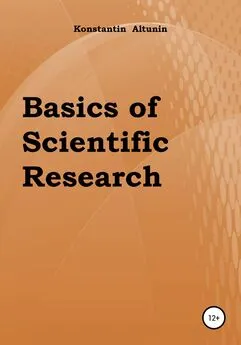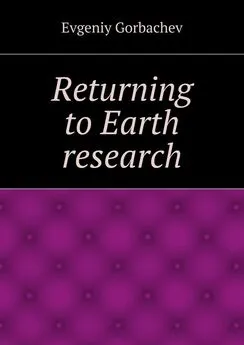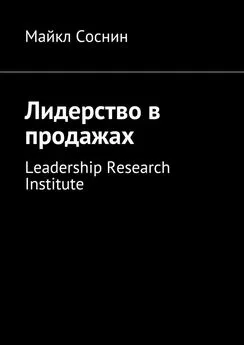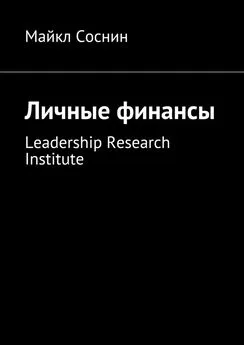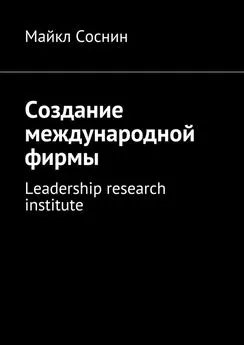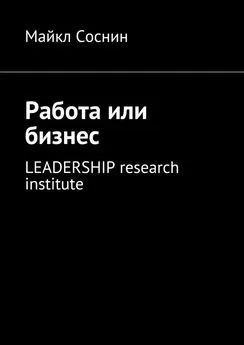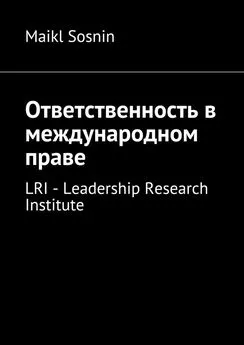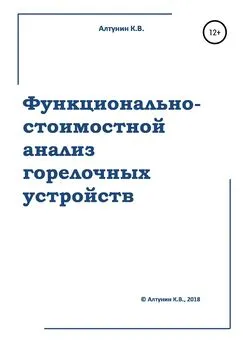Константин Алтунин - Basics of Scientific Research
- Название:Basics of Scientific Research
- Автор:
- Жанр:
- Издательство:неизвестно
- Год:2021
- ISBN:нет данных
- Рейтинг:
- Избранное:Добавить в избранное
-
Отзывы:
-
Ваша оценка:
Константин Алтунин - Basics of Scientific Research краткое содержание
Basics of Scientific Research - читать онлайн бесплатно ознакомительный отрывок
Интервал:
Закладка:
Константин Алтунин
Basics of Scientific Research
© Konstantin V. Altunin, 2019
Preface
The idea to create such a book was born earlier, and I would say much earlier than the date of its publishing. The reason was that I studied as a post-graduate student and was forced to pass examinations one of which touched upon the basis of scientific knowledge and philosophy of science.
Nowadays we live in the up-to-date changeable world and still try to beef up true knowledge about laws of it, not only laws of physics that seem to be discovered and passed hard during long ages from the sir Newton till the physician Einstein, from discovery of a wheel up to the appearance of nuclear reactors… It’s just obvious for the part of our life we solve easy and simultaneously complicated tasks, we are keen on to obtain so-called clear understanding this world where we constantly dwell.
And, first of all, we get the need for basis of scientific knowledge. Because while knowing and comprehending not only its worship Science, but also its formation, we can bravely go ahead for new discoveries.
The book consists of several parts with their own captions where you can get the most necessary information. The great attention is paid to methods and forms of scientific knowledge.
What is Research?
In the broadest sense of the word, the definition of research includes any gathering data, information and facts for advancement of knowledge.
Science does not use this word in the same way, preferring to restrict it to certain narrowly defined areas. The word ‘review’ is more often used to describe the learning process which is one of the underlying tenets of rigid structures defining scientific research.
Definition of research
When you say that you are undertaking a research study to find answers to a question, you are implying that the process:
1. is being undertaken within a framework of a set of philosophies ( approaches);
2. uses procedures, methods and techniques that have been tested for their validity and reliability;
3. is designed to be unbiased and objective.
Validity means that correct procedures have been applied to find answers to a question. Reliability refers to the quality of a measurement procedure that provides repeatability and accuracy. Unbiased and objective means that you have taken each step in an unbiased manner and drawn each conclusion to the best of your ability and without introducing your own vested interest. (Bias is a deliberate attempt to either conceal or highlight something).
Adherence to the three criteria mentioned above enables the process to be called ‘research’. However, the degree to which these criteria are expected to be fulfilled varies from discipline to discipline and so the meaning of ‘research’ differs from one academic discipline to another. The difference between research and non-research activity is, in the way we find answers: the process must meet certain requirements to be called research. We can identify these requirements by examining some definitions of research. The word research is composed of two syllables, re and search. So re is a prefix meaning again, anew or over again, search is a verb meaning to examine closely and carefully, to test and try, or to probe. Together they form a noun describing a careful, systematic, patient study and investigation in some field of knowledge, undertaken to establish facts or principles. Research is a structured enquiry that utilizes acceptable scientific methodology to solve problems and create new knowledge that is generally applicable. Scientific methods consist of systematic observation, classification and interpretation of data. Although we engage in such process in our daily life, the difference between our casual day- to-day generalisation and the conclusions usually recognized as scientific method lies in the degree of formality, rigorousness, verifiability and general validity of latter.
Characteristics of research
Research is a process of collecting, analyzing and interpreting information to answer questions. But to qualify as research, the process must have certain characteristics: it must, as far as possible, be controlled, rigorous, systematic, valid and verifiable, empirical and critical.
Controlled – in real life there are many factors that affect an outcome. The concept of control implies that, in exploring causality in relation to two variables (factors), you set up your study in a way that minimizes the effects of other factors affecting the relationship. This can be achieved to a large extent in the physical sciences (Cookery, Bakery), as most of research is done in a laboratory. However, in the social sciences (Hospitality and Tourism) it is extremely difficult as research is carried out on issues related to human beings living in society, where such controls are not possible. Therefore in Hospitality and Tourism, as you cannot control external factors, you attempt to quantify their impact.
Rigorous – you must be scrupulous in ensuring that the procedures followed to find answers to questions are relevant, appropriate and justified. Again, the degree of rigor varies markedly between the physical and social sciences and within the social sciences.
Systematic – this implies that the procedure adopted to undertake an investigation follows a certain logical sequence. The different steps cannot be taken in a haphazard way. Some procedures must follow others.
Valid and verifiable – this concept implies that whatever you conclude on the basis of your findings is correct and can be verified by you and others.
Empirical – this means that any conclusion drawn are based upon hard evidence gathered from information collected from real life experiences or observations.
Critical – critical scrutiny of the procedures used and the methods employed is crucial to a research enquiry. The process of investigation must be foolproof and free from drawbacks. The process adopted and the procedures used must be able to withstand the most critical scrutiny.
For a process to be called research, it is imperative that it has the above characteristics.
Types of research
Research can be classified from three perspectives:
1. Application of research study
2. Objectives in undertaking the research
3. Inquiry mode employed
Application:
From the point of view of application, there are two broad categories of research: pure research and applied research.
Pure research involves developing and testing theories and hypotheses that are intellectually challenging to the researcher but may or may not have practical application at the present time or in the future. The knowledge produced through pure research is sought in order to add to the existing body of research methods. Applied research is done to solve specific, practical questions; for policy formulation, administration and understanding of a phenomenon. It can be exploratory , but is usually descriptive . It is almost always done on the basis of basic research. Applied research can be carried out by academic or industrial institutions. Often, an academic institution such as a university will have a specific applied research program funded by an industrial partner interested in that program.
Objectives:
From the viewpoint of objectives, a research can be classified as
– descriptive;
– correlational;
– explanatory;
– exploratory.
Descriptive research attempts to describe systematically a situation, problem, phenomenon, service or programme, or provides information about, say, living condition of a community, or describes attitudes towards an issue. Correlational research attempts to discover or establish the existence of a relationship/ interdependence between two or more aspects of a situation. Explanatory research attempts to clarify why and how there is a relationship between two or more aspects of a situation or phenomenon. Exploratory research is undertaken to explore an area where little is known or to investigate the possibilities of undertaking a particular research study ( feasibility study/pilot study). In practice most studies are a combination of the first three categories.
Inquiry Mode:
From the process adopted to find answer to research questions – the two approaches are:
– Structured approach;
– Unstructured approach.
Structured approach:
The structured approach to inquiry is usually classified as quantitative research. Here everything that forms the research process such as objectives, design, sample, and questions that you plan to ask. It is more appropriate to determine the extent of a problem, issue or phenomenon by quantifying the variation, e.g., how many people have a particular problem? How many people hold a particular attitude?
Unstructured approach:
The unstructured approach to inquiry is usually classified as qualitative research. This approach allows flexibility in all aspects of the research process. It is more appropriate to explore the nature of a problem, issue or phenomenon without quantifying it. The main objective is to describe the variation in a phenomenon, situation or attitude, e.g., description of an observed situation, the historical enumeration of events, an account of different opinions different people have about an issue, description of working condition in a particular industry.
Both approaches have their place in research. Both have their strengths and weaknesses. In many studies you have to combine both qualitative and quantitative approaches. For example, suppose you have to find the types of cuisine/accommodation available in a city and the extent of their popularity. Types of cuisine is the qualitative aspect of the study as finding out about them entails description of culture and cuisine. The extent of their popularity is the quantitative aspect as it involves estimating the number of people who visit a restaurant serving such cuisine and calculating the other indicators that reflect the extent of popularity [2, 3, 4].
Science
Here are some common definitions of science:
– Branch of knowledge or study dealing with a body of facts or truths systematically arranged and showing the operation of general laws, e.g., the mathematical science;
– Systemic knowledge of the physical or material world gained through observations and experimentation;
– Systematized knowledge in general;
– Any of the branches of natural or physical sciences;
– A particular branch of knowledge;
– Knowledge, as of facts or principles; knowledge gained by systematic study;
– Skill, esp. reflecting a precise application of facts or principle; proficiency.
The word Science comes from Latin word "scientia" meaning "knowledge" and in the broadest sense it is any systematic knowledge-base or prescriptive practice being capable of resulting in prediction. This is why science is termed as highly skilled technique or practice. However, in more contemporary terms, science is a system of acquiring knowledge based on scientific process or method in order to organize body of knowledge gained through research. Science remains a continuing effort on the part of human being to discover and increase knowledge through research. Scientists can make observations, record measureable data related to their observations, analyze the information in hand in order to construct theoretical explanations of phenomenon involved.
Читать дальшеИнтервал:
Закладка:
